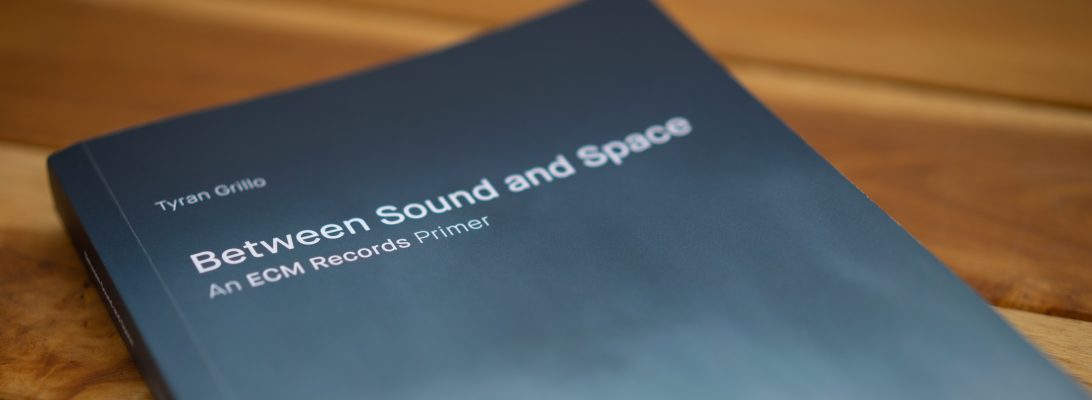Keith Jarrett
Hymns/Spheres
Keith Jarrett organ
Recorded September 1976, Ottobeuren Abbey
Engineer: Martin Wieland
Produced by Manfred Eicher
There are musicians and there are magicians. Keith Jarrett is of the latter persuasion. Whenever his fingers touch the keyboard, they seem to have plunged into earth and anointed themselves with million-year-old magma before committing themselves to ivory. To be sure, he is one of the world’s most renowned improvisers, yet Hymns/Spheres—released unabridged at last in this double-CD set—documents an encounter with a grand Baroque organ that seems written in the stars. The organ in question was built by Karl Joseph Riepp in the eighteenth century and is a spectacular instrument in its own right. In communication with Jarrett, it produces sounds of extraordinary color and variety of register (many of the unique effects were produced by pulling stops only partway), sounds that comprise perhaps his most transcendent record to date.
Trying to describe it is like painting every leaf on a tree: far easier to take a photograph and offer it in place of an inferior rendering. Yet the parsing of its canvas over the years justifies a more surgical analysis. When first reissued on CD in 1985 as Spheres (ECM 1302)—i.e., with none of the “Hymns” included—it retained from those titular pieces only the 1st, 4th, 7th, and 9th Movements. Through them Jarrett was telling an eco-minded story, one that follows a single drop of water from the sky (prelude to a storm that never materializes) and freezes it in midair with winter’s coming to the sound of one bird flying south. Feelings of ice pervade the barren trees. The laughter that once ricocheted between them now hangs from the branches, an icicle for every child’s breath. Not all is gloom, however, for there is also a plenitude of warmth to be consumed and savored. Like a sleeping beauty who opens her eyes, only to stare into the depths of her own face, the 7th Movement stands before a mirror of inescapable meditation, while the 9th breaks thaw. Stirrings from below: beetles and earthworms unfurling with virginal respiration. A volcano erupts halfway around the world, yet you feel it in every follicle. Ships release their warning calls. You twist like a braided cord, thinner with each revolution, until your body is a wisp of molecules connecting lad, sea, and sky.
Fans were rightly saddened by the 1985 reissue for lacking five of the nine “Spheres” and the two “Hymns” etched into the original vinyl. The Hymns are especially important in tying this intimate session together; they begin and end its otherwise incomplete circle. Like much of the once-missing material, they are fuller, rib-shattering proclamations, much in contrast to the brooding abridgement. “Hymn Of Remembrance” opens ears and hearts like a church service in which communion is taken in wafers of sound, baptism in a river of glowing breath. “Hymn Of Release” processes along the walls, resting behind pews in postludinal exaltation.
As for the newly restored “Spheres,” they seem to open their mouths and eject columns of light into the very stars. Jarrett threads between the falling debris as many chords as he can before it combusts in the stratosphere (perhaps cluing us in on their collective title). If, in the 2nd Movement, we find ourselves confronted with a blinding vision of spirit, in the 3rd we are shown the opposite in tangled darkness. Jarrett resolves this tension with a pedaled drone, over which he unfurls a hefty banner of unrelenting majesty. The 5th and 6th Movements complicate this resolution with jagged memories, uncertain motives, and tattered masks. The final mystery is reclaimed in the 8th, where notes shimmer with underwater vibrato in a deepening commitment to contemplation.
It’s a shame that over half the album should have once been sacrificed, though I wouldn’t have programmed the Spheres reduction any differently, except perhaps to include the Hymns. Then again, a realization wraps its arms around me as I listen to the whole story anew: this music will never be complete. Its hints of infinity are overwhelming, and we are fortunate enough to know their touch in any form.
<< Keith Jarrett: The Survivors’ Suite (ECM 1085)
>> Edward Vesala: Satu (ECM 1088)


